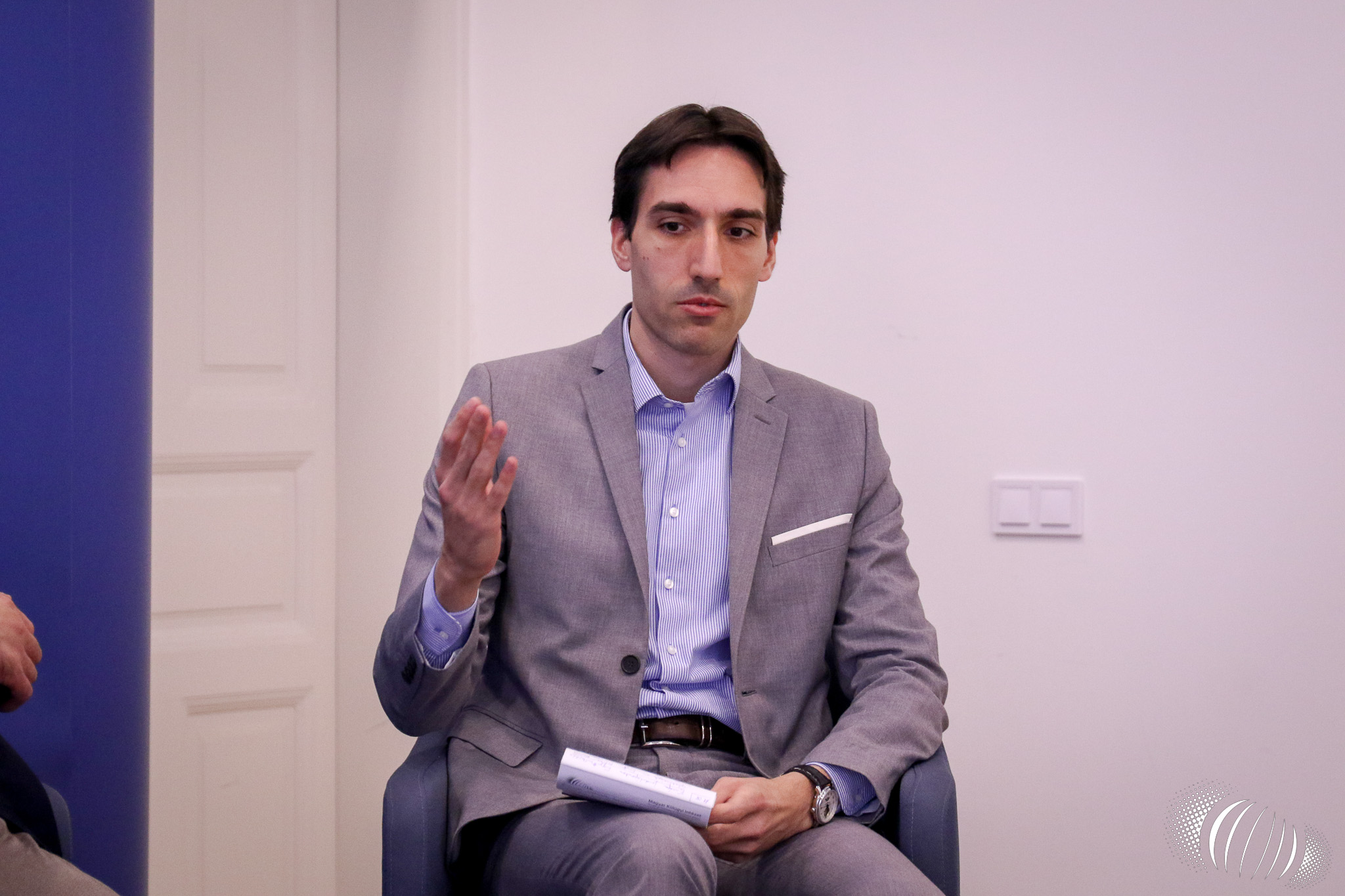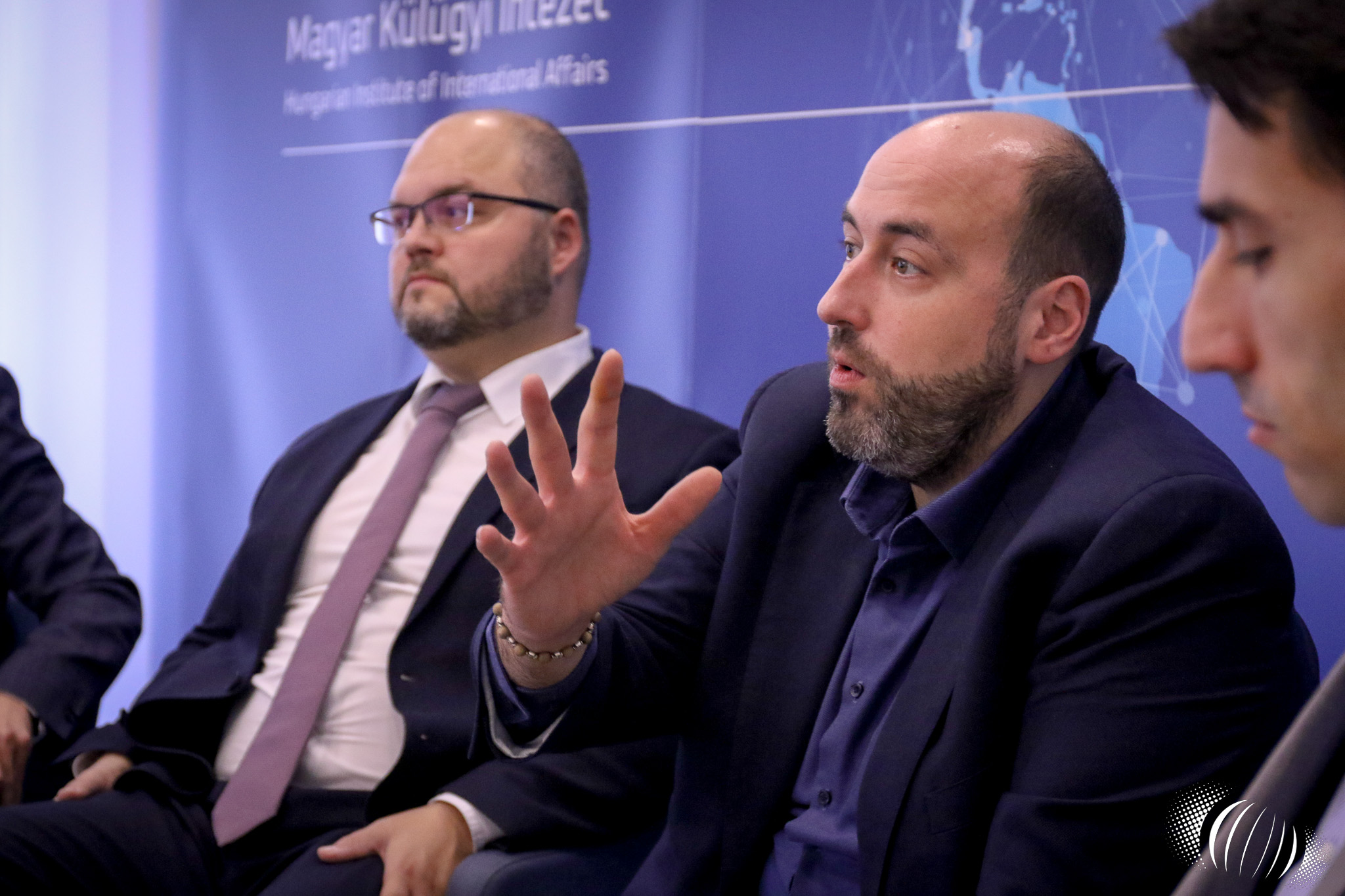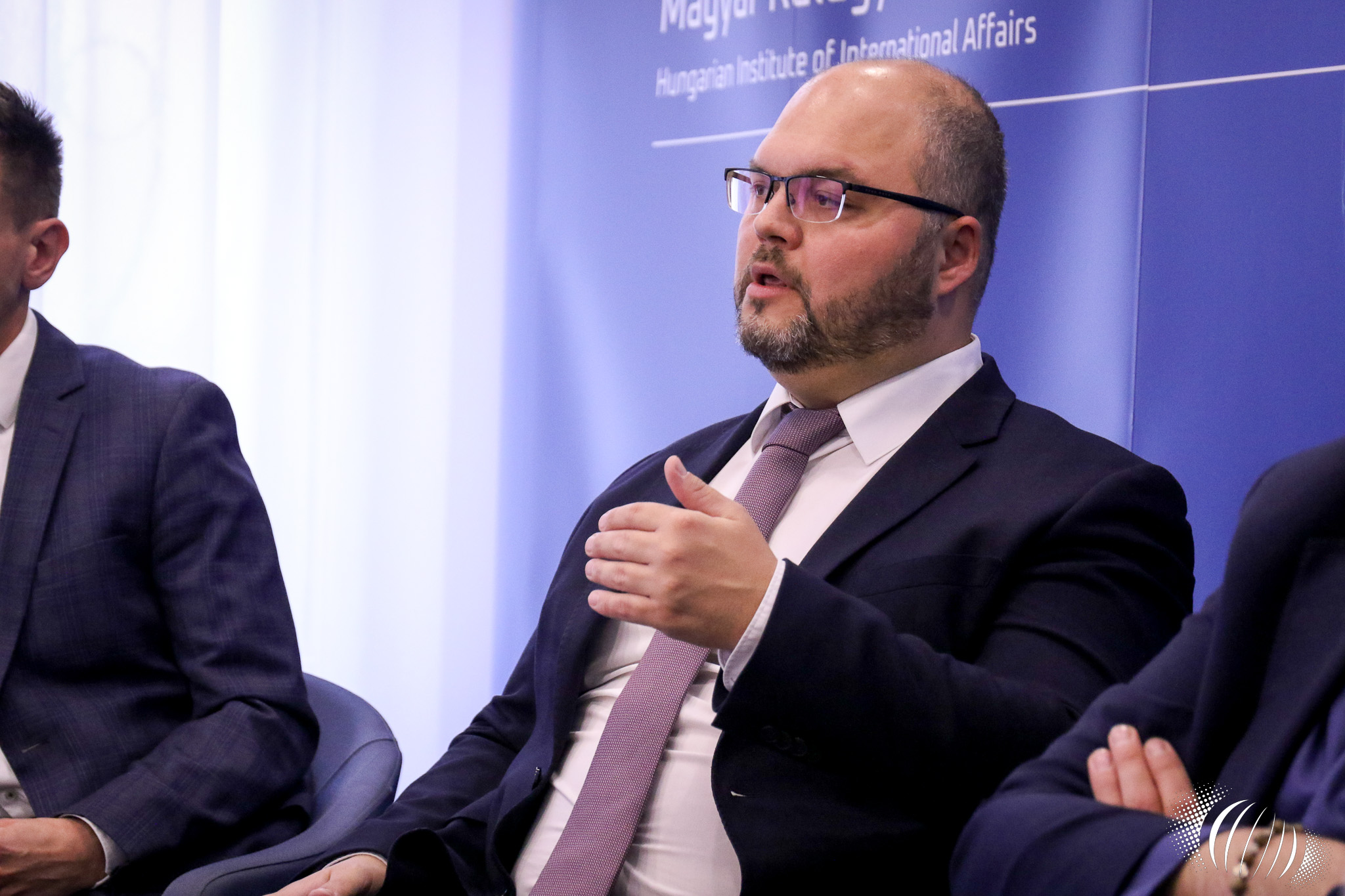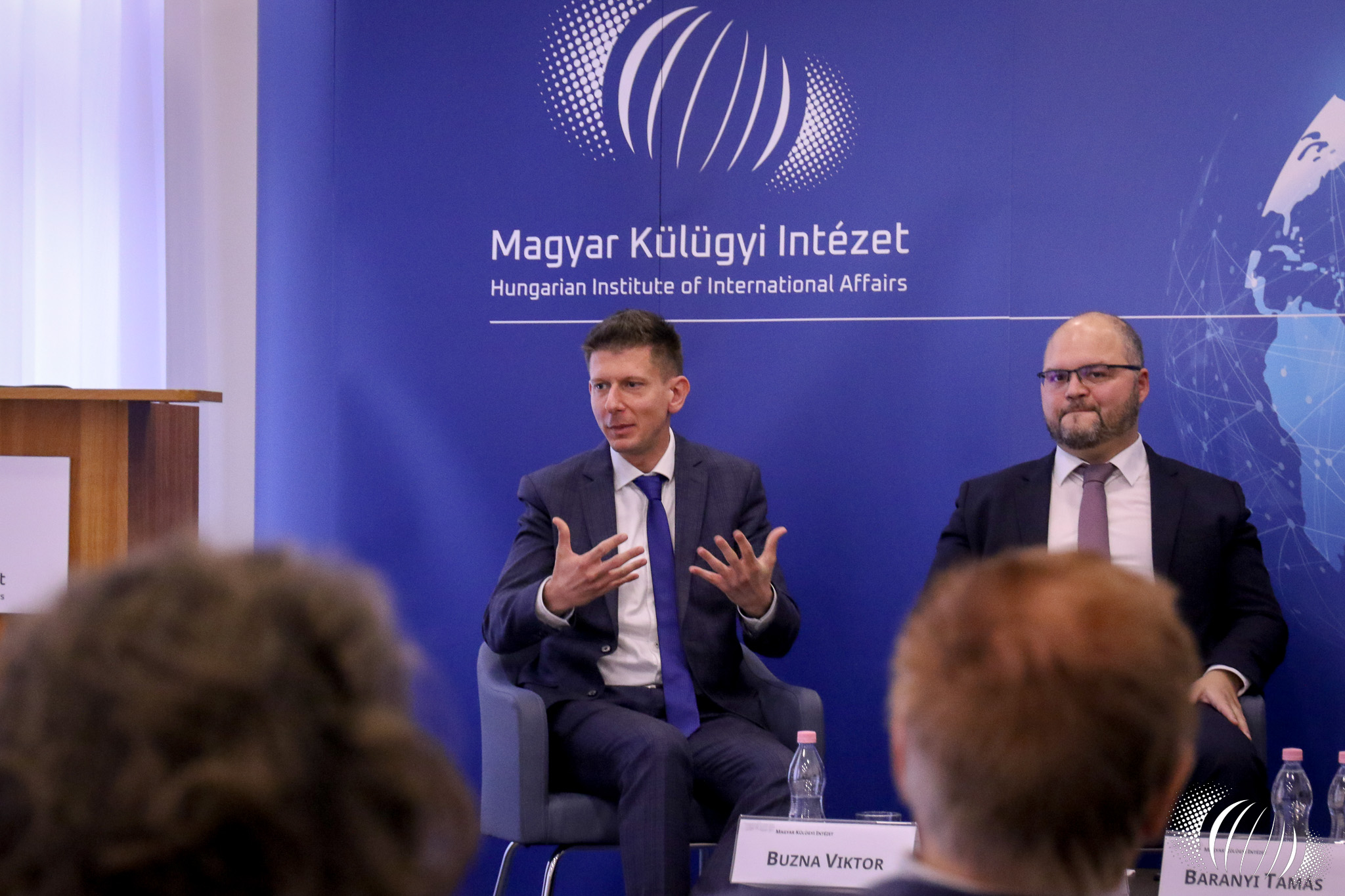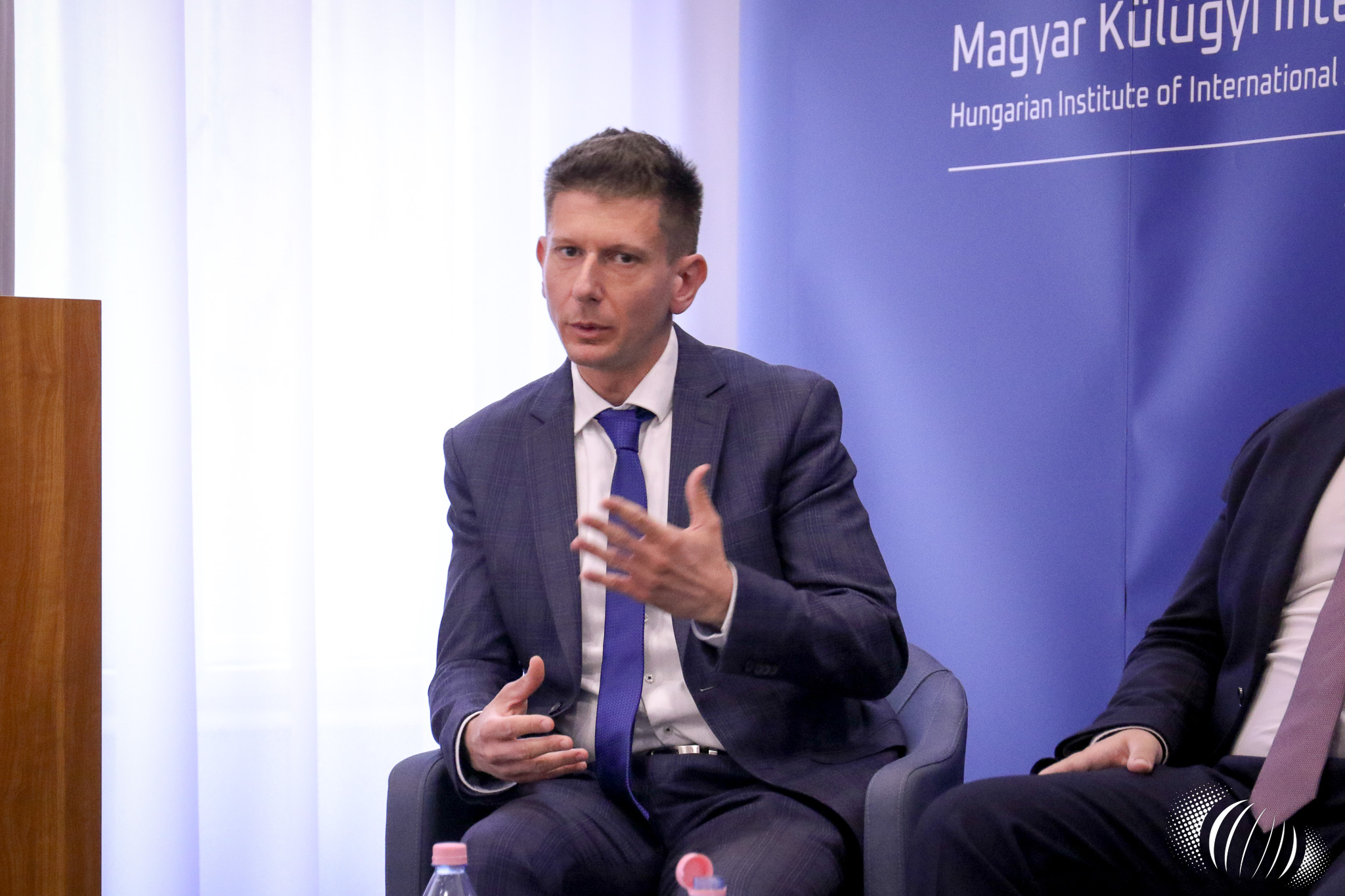On November 8, 2024, the Hungarian Institute of International Affairs (HIIA) organized a panel discussion reflecting on the summit of the European Political Community (EPC) held the previous day, November 7, in Budapest. The participants of the discussion were Dr. Tamás Baranyi, Director for Strategy at HIIA; Dr. Ákos Mernyei, Ambassador for Global Public Diplomacy Engagement and Presidential Advisor of HIIA; and Viktor Buzna, Research Fellow of HIIA. The event was moderated by Jad Marcell Harb, Research Fellow of HIIA.
The discussion covered four main topics. The first examined the significance of the EPC for Hungary, particularly the implications of hosting the summit. The panelists emphasized that this event refuted claims suggesting Hungary’s political isolation. Regarding Donald Trump’s potential return, it was noted that his approach to China and his strategy for ending the Russia-Ukraine war remain unclear. However, in the Middle Eastern conflict, he is expected to adopt a strongly pro-Israel stance. Nonetheless, Europe and the world must prepare for a transactional foreign policy during a second Trump presidency.
At the EPC meeting in Budapest, leaders participated in two working groups. A key topic in the working group on economic security and connectivity was restoring European competitiveness, where collaboration between EU and non-EU countries could prove fruitful. In the energy sector, partnerships with Norway or the United Kingdom were highlighted as potential opportunities, while the Western Balkans and Turkey could serve both as markets and as hubs for technology transfer to the EU—opportunities that should be leveraged more effectively, according to the discussion.
The other EPC working group focused on migration. The panelists highlighted that the organization’s strength lies in its diverse membership, encompassing both sending and receiving countries, which gives a potential migration agreement at the EPC level significant impact. They emphasized the importance of reaching agreements and fostering security cooperation with the Western Balkans and Turkey, as key migration routes to the EU pass through these regions. Additionally, the possibility of an agreement modeled on the Italy-Albania pact was mentioned, which could involve temporarily hosting EU asylum seekers in these countries.

